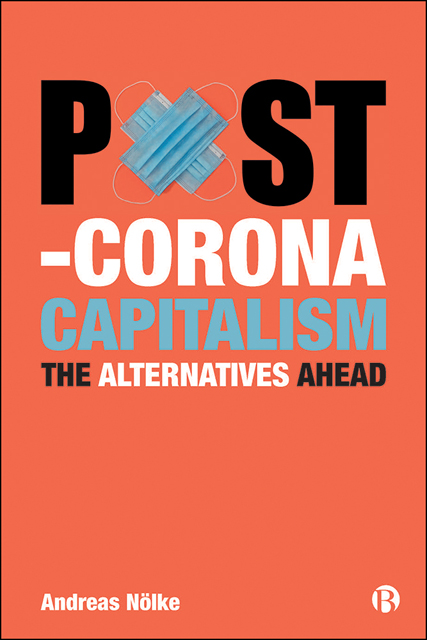Book contents
- Frontmatter
- Dedication
- Contents
- List of Abbreviations
- Acknowledgements
- Preface
- 1 Introduction: Confronting a Multidimensional Crisis of Capitalism
- Part I Capitalism and Society
- Part II Domestic Institutions of Capitalism on the Demand Side
- Part III Domestic Institutions of Capitalism on the Supply Side
- Part IV The International Institutions of Capitalism
- Part V Anthropocene Capitalism
- Part VI Geo-economic Shifts in Global Capitalism
- Part VII Ideologies in Contemporary Capitalism
- References
- Index
33 - Conclusion: Competing Visions of Capitalism and their Perspectives
Published online by Cambridge University Press: 13 October 2022
- Frontmatter
- Dedication
- Contents
- List of Abbreviations
- Acknowledgements
- Preface
- 1 Introduction: Confronting a Multidimensional Crisis of Capitalism
- Part I Capitalism and Society
- Part II Domestic Institutions of Capitalism on the Demand Side
- Part III Domestic Institutions of Capitalism on the Supply Side
- Part IV The International Institutions of Capitalism
- Part V Anthropocene Capitalism
- Part VI Geo-economic Shifts in Global Capitalism
- Part VII Ideologies in Contemporary Capitalism
- References
- Index
Summary
What will post-corona capitalism look like? We don't know. It is the core contention of this book that important political choices about the future of capitalism lie ahead. It has described some 30 of these choices and the alternatives available. The next years will demonstrate which of the alternatives will be realized and which not. This will be the outcome of political struggles and the book hopefully can contribute towards making these struggles more democratic, by highlighting the alternatives at hand. Still, this book has also assembled empirical evidence with regard to the likelihood of these alternatives, based on developments during the first two years of the crisis. While this is still very early in the process, we can nevertheless summarize broad tendencies.
Competing visions of post-coronavirus capitalism
In order to reduce the complexity of a long list of individual observations, this chapter will allocate the latter to a small number of alternative visions of future capitalism (see also Dummer and Neuhäuser, 2020). The identification of these visions follows the alternative options discussed in some individual chapters. The book distinguishes five different options for the near future of capitalism. Since space does not permit for a long description of these models, we can link the latter to recent governments that have pursued related policies (where available):
• Classical liberal capitalism: The focus is on a central role for private business, the preponderance of shareholder value and unregulated markets (laissez-faire), in order to maximize the productive potential of capitalism. Traditionally, this vision of capitalism has been pursued in the US (Republicans before Trump) and the UK (particularly by Tory governments under Thatcher).
• Cosmopolitan technocratic capitalism: While sharing some concerns with classical liberal capitalism, the focus here is on managing global capitalism in a frictionless way, which includes some form of regulation and often the delegation of authority to non-majoritarian institutions, both domestically (for example, central banks) and internationally (for example, the IMF). This is a vision of capitalism that can be found with many global organizations, but also within EU institutions and the German government (during the Merkel chancellorship).
- Type
- Chapter
- Information
- Post-Corona CapitalismThe Alternatives Ahead, pp. 203 - 210Publisher: Bristol University PressPrint publication year: 2022



